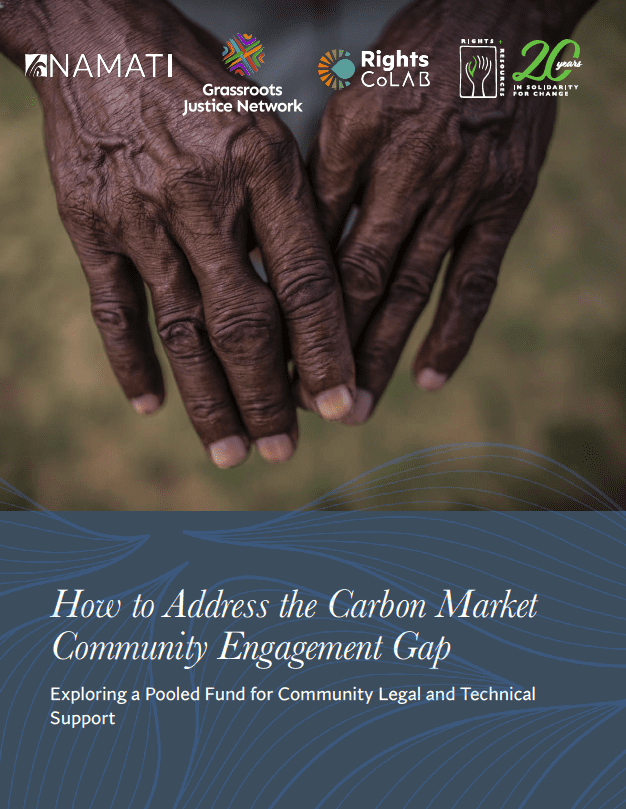Date: February 13, 2025
In September 2024, during UN Climate Week in New York, the Rights and Resources Initiative, Namati, the Grassroots Justice Network, and Rights CoLab convened an expert workshop on how to provide legal and technical support to address the challenges that affected communities face in the context of nature-based solutions, including voluntary carbon and biodiversity credit projects.
The workshop aimed to generate a better understanding of:
- The specific types of support needed by communities affected by carbon credit projects and how best to deliver that support; and
- How to marshal funding for and implement a pooled fund that could finance that support.
The idea of a pooled fund for community legal and technical support has evolved over many years. In 2020–2022, Namati conducted consultations with hundreds of private sector, civil society, philanthropic, and government actors to identify a pathway to implement a pooled fund. In 2023, Rights CoLab and Just Ground joined Namati and the Grassroots Justice Network to further test this idea in joint workshops with civil society and private sector representatives and produced a brief reflecting the learnings and consensus that emerged, including the core principles that should govern such a fund.
The brief provides the rationale and conceptual framework for a pooled fund for community legal and technical support, but many questions remain to be answered. This workshop aimed to fill in some of these gaps, with a specific focus on the voluntary carbon and biodiversity credit markets.
Over 30 people attended the workshop, including rightsholders, civil society representatives, environmental NGOs, donors, and industry and private sector representatives. The session began with an introduction describing the outcome of prior research and engagements on the pooled fund concept. Participants then had breakout group discussions centered on the two themes listed above. A final plenary discussion focused on developing concrete next steps toward implementing a pooled fund in the voluntary carbon and biodiversity credit markets.
This document provides a brief overview of the workshop discussion and outlines next steps. It serves as a guide to further efforts to implement a pooled fund for legal and technical support for communities impacted by carbon credit projects in pursuit of more just, transparent, and equitable climate and conservation actions.
https://doi.org/10.53892/GIYB4354

